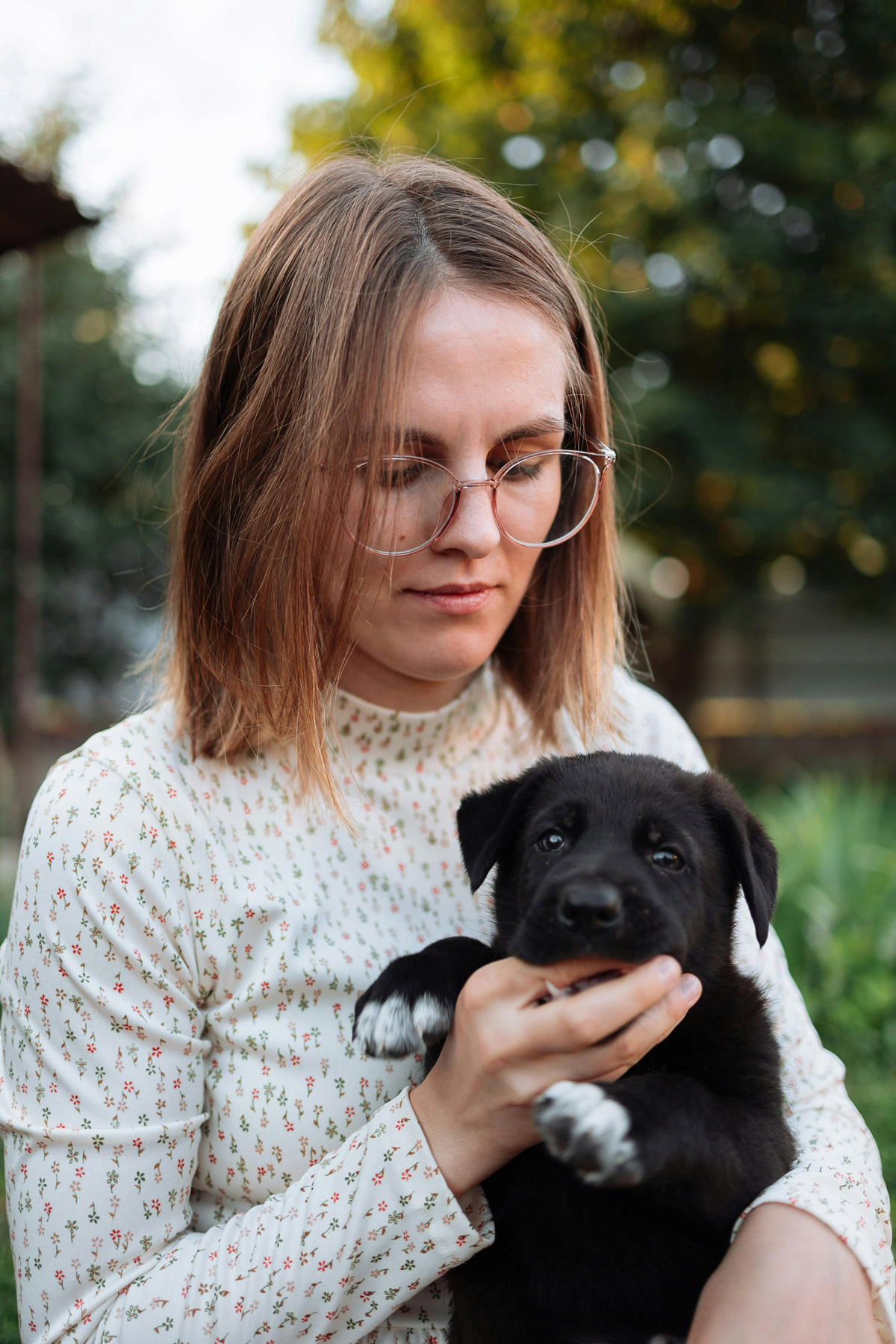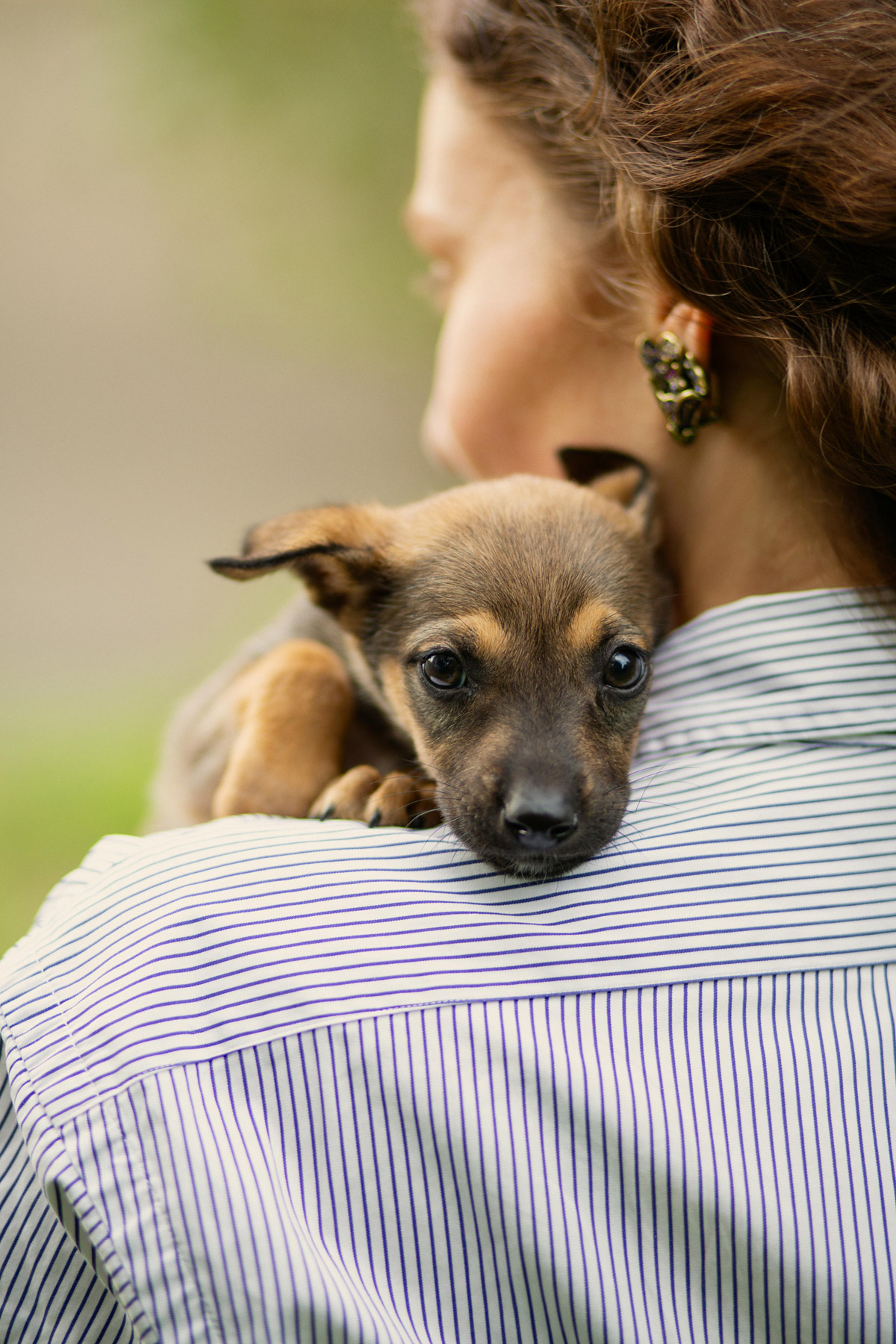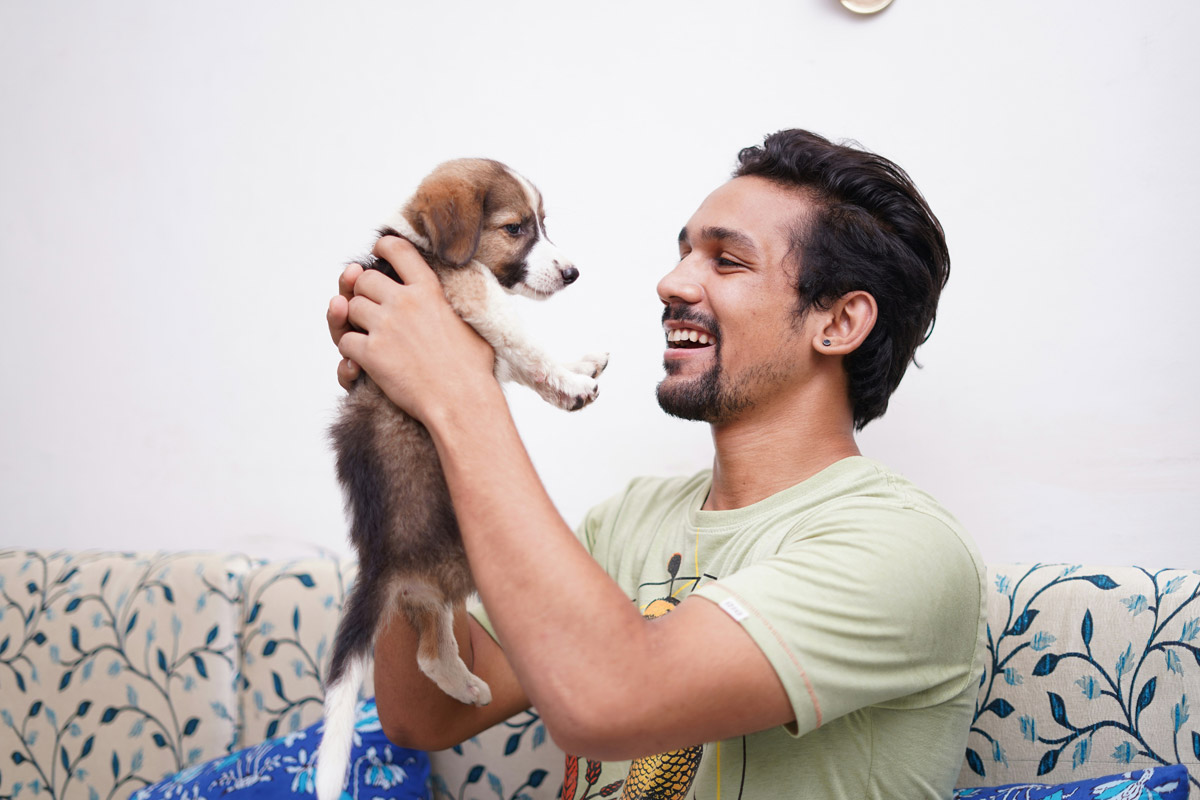ARTICLE AD

Last week we covered Brisket’s Dad (pka Glen Powell) describing the epiphany that led him to adopting Brisket: “I just had the desire to be a father.” Y’all had strong and varying opinions in the comments about whether it was appropriate to use the parent comparison for one’s pet. All points of view are valid! I think the key to remember is that pet relationships are unique to everyone and to respect ones that differ from our own. That preamble aside, researchers from the University of Helsinki are throwing a bone (sorry, not sorry) to those like Brisket’s Dad who feel that their pups are their babies. The study showed that human parents of puppies can get “puppy blues,” akin to “baby blues” when raising a baby. The primary symptoms are anxiety, frustration, and weariness. Unfortunately, there were no results to explain why I’m still carrying the litter weight.
If you’re one of those people who refers to your dogs as your “babies,” a new study is going to make you feel pretty validated. According to researchers at the University of Helsinki, for some new dog owners, the experience of raising a puppy is comparable to the postpartum “baby blues” many human parents experience with their newborns.
The puppy stage gives rise to a variety of worries, mood swings, irritability, and sometimes, difficulty bonding with the dog that feels at odds with what you’re “supposed” to feel raising something so cute.
“Both ‘pet parents’ and human parents describe anxiety and depression-like symptoms triggered by the life change of a new family member, though it typically diminishes over time,” said Aada Ståhl, a psychologist and doctoral student at the University of Helsinki and one of the lead authors of the study.
Puppy blues symptoms play out in three distinct ways, Ståhl told HuffPost, though usually, people experience multiple symptoms at once:
Anxiety: The new puppy owner might seriously doubt their ability to raise the dog or worry about the puppy’s well-being and development. (For instance, maybe they fear creating a yappy, unhousebroken puppy).
Frustration: The challenges and unexpected difficulties of puppy care — poor behavior, an inability to establish an emotional bond — are common stressors, too. Some puppy owners may feel so overwhelmed by their new responsibilities, they may even regret their decision to get a dog or wonder if they should give the puppy up.
Weariness: Fatigue, difficulty sleeping (even if the puppy is sleeping fine), and anxiety about the time and attention the puppy needs are all common among new pet owners.
Ståhl’s interest in this subject began a few years ago when she came across discussions from beleaguered pet parents on dog forums.
“Puppy owners were sharing their struggles with anxiety and frustration and difficulties in forming an attachment to the puppy during this period, and there were a lot of ‘baby blues’ comparisons,” Ståhl said. “As a psychologist, this caught my attention, prompting me to search for existing research, which was lacking at that time.”
The findings of Ståhl’s study are no surprise to Brett Endes, a professional dog trainer and canine behavior consultant in Los Angeles. Many new dog owners are unprepared for the amount of work that goes into raising and training a puppy, he told HuffPost.
“Training, socialization, and establishing a routine are crucial, yet they can be daunting tasks for new owners,” Endes said. “Additionally, some people adopt puppies to fulfill emotional needs, expecting them to provide immediate comfort and companionship.”
In the rush and excitement of getting a new puppy, people tend to underestimate the significant lifestyle adjustments and the constant attention puppies demand.
The reality is, puppies require guidance, patience, and training to develop into well-behaved dogs. This mismatch of expectations and actual experience can lead to disappointment and contribute to the “puppy blues,” Endes said.
I have a confession to make: I’ve never been through the rigors of raising a dog from puppyhood. When I adopted My Girl from a rescue fair, the vet looked at her teeth and estimated that she was about 18 months old. Still young, but not a newborn — which I think worked out best, because whenever I imagine how adorable a teeny tiny My Girl must have looked like, I run the risk of spontaneous combustion. But even without having seen My Girl through her first year-and-a-half of life, I can still vouch for having experienced anxiety, frustration, and weariness in our 11 years of being family. That’s what love does to you! And I wouldn’t trade it for anything. (Even considering that unlike a human baby, puppies basically grow up to be permanent toddlers.)
A note from My Girl: Not that anyone asked, but I’ll have you all know that I feel all those feeling things too a million times a day! There’s the anxiety that I’ll never have another meal. And then the frustration that I haven’t been given another meal. And of course the constant weariness of having to remind Mama to frickin’ give me another meal! And, for the record, the only Brisket I’m interested in is the one that has been doused in gravy and roasted in the oven for a few hours… I’m hungry.
Photos credit: Yogendra Singh on Unsplash, Garrett Karoski, Polina Chistyakova, Valeria Boltneva, Pixabay and Thirdman on Pexels

 2 months ago
15
2 months ago
15 




